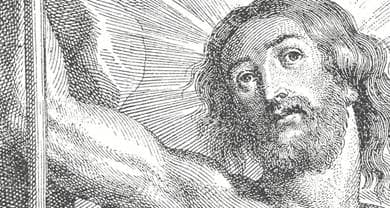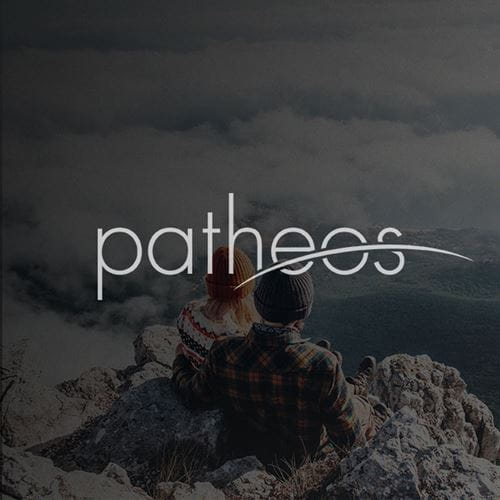- Trending:
- Forgiveness
- |
- Resurrection
- |
- Joy
- |
- Feminism
- |
- Afterlife

RELIGION LIBRARY
Anglican/Episcopalian
Vision for Society
At its origin and early in its development, the Anglican vision for society was that of a godly state. The elements of the godly state included a godly monarch, a hierarchical Church polity, clergy who conformed to certain accepted standards of worship, and a belief system that was distinctly Protestant, but loosely defined so as to include as many people of the realm as possible.
In early modern England, control over the Church was crucial to control over society. In no small part Henry VIII's break from the Roman Church and limited embrace of the Reformation can be seen in these terms. He was named the supreme head on earth of the Church of England. He sought to destroy all remnants of papal control over English society, suppressing monasteries (which existed outside the control of the local parish) and the cult of purgatory (which, through papal indulgences, gave the papacy a say over people's salvation, and therefore over their behavior). He licensed the English Bible, a move with English nationalistic overtones. Henry's son, Edward VI, carried on as supreme head of the Church. Then, after his successor Mary I returned the English Church to the papacy, Elizabeth I brought back Protestantism and was named supreme governor (rather than supreme head) of the Church of England, for it was held that a woman could not be head of the Church. Her successor James I retained the title. Kings, he affirmed, ruled by divine right.
The rule of the godly prince was supported by a hierarchically governed Church. Episcopacy, the system of Church polity that includes bishops as overseers, was viewed by the monarch as preferable to egalitarian structures, which would have decentralized control of the Church. King James famously uttered the aphorism, "no bishop, no king." Further, all clergy members were required to swear an oath of allegiance to the crown.
Beginning late in the reign of Edward, but more saliently during the longer monarchies of Elizabeth and James, clergy were also required to conduct worship services in conformity to the Book of Common Prayer (BCP). This included wearing certain vestments (clerical attire) and following the prescribed order of service. The clergy also had to subscribe to the Articles of Religion, a confession of faith that was Protestant in character, but ambiguous on a number of points so as not to offend those of various schools within Protestantism. The goal was a national, Protestant Church that could embrace, and be embraced by, as much of the English populace as possible.
This vision of a godly state does not characterize Anglicanism today, not least because most Anglican denominations are not established (meaning they are not state churches). But even where the Church is established, there is not an accompanying belief that the state should dictate what its citizens believe. Anglicanism upholds freedom of conscience.
Although it is clear that Anglicanism no longer embraces a vision of a godly state, it is more difficult to discern a vision of society that could reasonably be thought representative of Anglicanism. For instance, some Anglicans support the separation of the Church from the state, others support establishment (although not generally in places where the Church is not already established). Many Anglicans support civil disobedience in furtherance of biblical principles such as peace. Many others, however, promote obedience to civil authorities, except to the extent civil policies would force the Christian to act contrary to conscience.
Still, some commonalities are visible. Most Anglicans uphold broad biblical principles such as human dignity, mercy, justice, and peace. Also, most Anglicans would agree that Christians may promote such ideas in the public square. Biblical principles, most would say, should not be banned from the public square merely because they are biblical.
This common ground is limited, however, in that there are widely divergent views of how the Bible, or rather what aspects of it, may rightly be made part of public policy and discourse. Is the field limited to broad principles, or are specific moral injunctions permitted in order to flesh out the principles? Anglican views differ. Furthermore, even where there is agreement on the relevance of a particular principle or moral injunction, it may be interpreted differently by different Anglicans, and there might not be a uniform perspective on how it should be embodied in the crafting of public policy.
Consequently, Anglicans are to be found on either side of most prominent political issues. Some favor the death penalty as a way of promoting justice; others oppose it as unjust in its application, and in any case as forsaking mercy. Some support marriage for homosexuals as promoting justice and the recognition of human dignity; others oppose it as undermining public morality and therefore human dignity. And on other questions there is likewise disagreement.
Study Questions:
1. How was political control tied to the early Anglican vision for society?
2. What is meant by a godly state? Is this still the goal of Anglicanism? Explain.
3. Do Anglicans hold common views for society? Explain.










